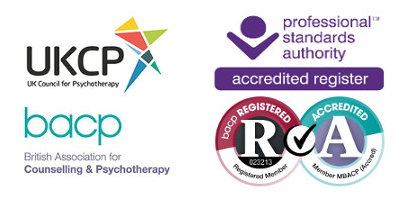Therapy for Male Victims of Domestic Violence
When men are victims of Violence, Rape and the Sexual Abuse, Counselling with Marcus can help
There is a myth that domestic violence, emotional abuse and sexual abuse do not happen to men. Nothing could be further from the truth. Statistics show that domestic violence against men is widespread. These attacks can happen to anyone regardless of gender, size, age, appearance or sexual orientation. The abuser can be female or male, gay or straight. Domestic Violence Therapy for Men helps any man who has suffered any form of violent, sexual or psychological abuse to manage and understand their physical or emotional response to it and to move forward.
Necessity for Safe Space to Talk about Abuse In Your Own Time
Domestic Violence Therapy for Men offers a safe and confidential space where you will be heard, accepted and affirmed. This is crucial, because many male victims of physical, emotional or sexual abuse find it extremely challenging to talk about their experience. They may fear judgment or ridicule, and that fear itself increases their feelings of isolation and shame. A domestic violence therapist will understand that:
- Being beaten up, shamed or raped has nothing to do with being weak or not a ‘real’ man. Actually, it takes great strength and self-control to put up with long-term abuse without retaliating.
- It takes strength to stay in a controlling, unhappy relationship for the sake of your children.
- It takes strength to stay in an abusive relationship because you still love your partner and hope that they might change.
- It takes strength to finally admit that you are in an abusive relationship, and that you might need help.
- There is no obligation at all to speak, only the opportunity to do so when you’re ready and in your own time.
Other Myths about Male Victims of Domestic Violence
- ‘If you have been drinking or taking drugs and someone sexually abused you, you were asking for it.’ Not true.
- ‘Gay men and boys are sexually abused more than heterosexuals.’ Not true.
- ‘Only gay men sexually assault other men.’ Not true.
- ‘Sexual abuse makes you gay.’ Not true.
- ‘Men cannot be sexually abused by women.’ Not true.
- ‘Erection or ejaculation during a sexual abuse means you really wanted it or consented to it.’ Not true.
- ‘Being sexually abused will make you an abuser.’ Not true.
Sexual assault is about violence, anger, power and control over another person. It’s not about lust, desire or sexual attraction.
Some Common Feelings Following Male Rape or Assault
- Shock, Numbness
- Disbelief and/or Denial (trying to shrug it off)
- Embarrassment
- Shame, Guilt
- Depression, Tiredness, Hopelessness
- Powerlessness
- Disorientation
- Flashbacks (Through All 5 Senses)
- Fear, Anxiety, Paranoia
- Anger and Rage Problems
- Physical Stress, Aches and Pains
Particular Issues for LGBT Men who have been the victims of domestic violence
Gay and bi men may be particularly prone to suffering the following types of domestic abuse:
- threats of being ‘outed’
- being forced to stay closeted if the abusive partner is in the closet
- threats by the abuser to harm themselves if you leave
- threats to disclose your HIV or STI status
- verbal abuse about your HIV or STI status
- threats to infect you by not practising safe sex
- violation of your boundaries, safe words and limits during sex
- pressure to have sex with other men
- pressure to take drugs or alcohol to ‘get into the mood’ for sex
Gay and bi men who are experiencing domestic violence may assume:
- there is no point trying to seek help or support
- no one will understand you or believe you
- you will be treated with contempt
- the violence is your fault and you are to blame
- your partner will change because he said he is sorry and even promises to ‘get help’
Gay and Bi men may stay in an abusive relationship believing that:
- there isn’t the same entitlement to legal protection as straight people enjoy
- abuse in same-sex relationships is ‘normal’
- if you behave differently your partner will change
- your partner is turning over a new leaf
I’m experiencing Domestic Abuse and feel unsafe, what should I do?
You may be used to feeling resigned, hopeless and overwhelmed by fear – fear of loneliness, fear of violence, fear of the unknown.
Once someone starts to use violence and abuse, it is likely to escalate and get worse, whatever the abuser says. Changing your behaviour, as the abuser may be demanding, is unlikely to stop the abuse.
Talking through your situation and the violence you are living with may help you to begin to make sense of your situation, enable you to look at your options and discuss safety in a logical manner, including whether to involve the police or to seek temporary accommodation in a refuge.
Therapy for Male Victims of Domestic Violence with Marcus
Whether you are a man who has been the victim of domestic violence, rape or another form of physical or psychological abuse, whether it was in the past or is a situation that you are currently enduring, counselling with a therapist can help you to move forward, talk to Marcus in a safe confidential space



